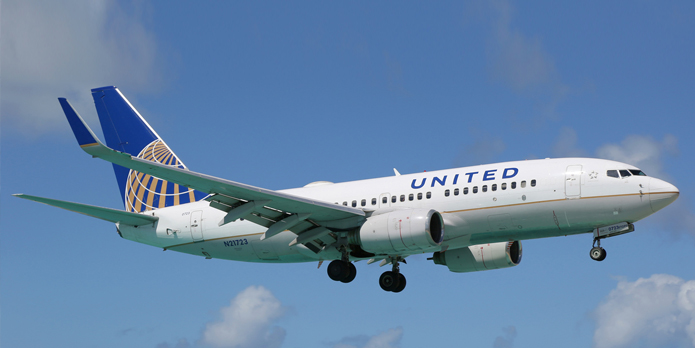
Flight risk
Senior Account Director, Louise Harris, looks at how United Airlines’ approach to crisis management could risk knocking millions off its bottom line.
Just weeks after being lambasted for refusing to allow two children to board a flight while wearing leggings, US-based airline, United, has, once more, come under harsh criticism after footage emerged showing one of its passengers being forcibly removed from a flight departing Chicago’s O’Hare International Airport.
The passenger in question was one of four people randomly selected and told to disembark from the flight, which had been over-booked. Video footage shows the passenger left bloodied and visibly shaken after being dragged from his seat, and along the aisle, by a security officer.
Shocking scenes captured on a smart phone by a fellow passenger which – thanks to a mix of citizen journalism, social and mass media – have now been shared around the globe.
Almost, but not quite, as shocking as the video itself is United Airlines CEO, Oscar Munoz’s approach to crisis management. A leaked email saw him describe the passenger as ‘disruptive and belligerent’ and defend the actions taken by staff as having been within “established policies for dealing with situations like this”.
And what about their official statements to the media? With no apology for the physical harm caused to their customer; no recognition that the incident caused distress to fellow passengers and no suggestion that they’ll change their policy or approach as a result, it’s no wonder United is being hauled over the coals.
Mr Munoz’s oblique, jargon-filled apology for “having to re-accommodate these customers” did little to quell the public furore – and it’s not hard to see why.
The Twitter storm around this issue continues, as the original video continues to go viral. In the short term at least, United has dealt a pretty significant blow to its brand capital – with its ‘Fly the friendly skies’ strapline coming under particular fire online.
So what now? Should competitor airlines expect a rush in demand to ‘re-accommodate’ United Airlines’ passengers? With talk of a mass boycott by consumers growing online, it looks likely.
What we do know is that by the morning of 11 April 2017, United’s stock had fallen 3%, something analysts are attributing to the poor response by the airline to its reputational crisis (proof if any were needed of the value in investing in good communications).
United has since upped its game by offering to refund the full cost of every passenger on the flight’s ticket. Mr Munoz has since appeared – in person, not hiding behind a written statement – on US television to apologise for his former public statements and admit that he is ashamed that the incident took place. Is this too little, too late from someone who was earlier this year named “Communicator of the Year” by PR Week? We think so.
What does United Airlines’ response to this crisis tell us more generally?
- Taking a heavy-handed approach to consumers will not be tolerated
- Citizen journalism and the power of video should not be under-estimated
- ‘Good’ policies can’t be based on, or used to defend, bad behaviour
- No-one wins hearts and minds by issuing corporate statements – you have to be seen to be “out there” by the people you’re trying to influence
- Trial by Twitter can bring even the biggest brands (and senior communicators) to their knees.
Freshwater offers a range of specialist services including reputation and crisis management and bespoke communications training to bring your team together.
